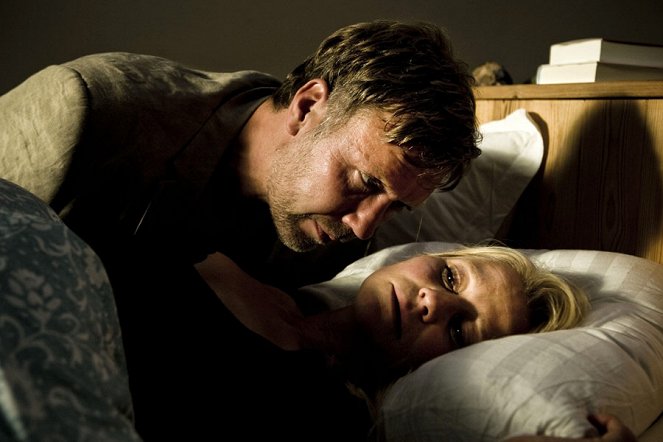Réalisation:
Susanne BierScénario:
Anders Thomas JensenPhotographie:
Morten SøborgMusique:
Johan SöderqvistActeurs·trices:
Mikael Persbrandt, Trine Dyrholm, Ulrich Thomsen, William Jøhnk Nielsen, Markus Rygaard, Wil Johnson, Elsebeth Steentoft (plus)Résumés(1)
Anton partage sa vie entre le Danemark, et son travail dans un camp de réfugiés en Afrique. Leur fils aîné, Elias, âgé d'une dizaine d'années est brutalisé à l'école, jusqu'au jour où un autre garçon, Christian, décide de prendre sa défense. Mais Christian implique Elias dans un acte de vengeance où des vies humaines sont en jeu, leur amitié s'en trouve durement éprouvée. (Equation)
(plus)Vidéo (2)
Critiques (6)
Encore une contribution danoise au cinéma mondial. Je ne sais pas comment font les Danois pour que tout ce qu’ils produisent soit bon et inventif à ce point. Susanne Bier, en particulier, est une réalisatrice hors pair que j’ai élevée dans le top de mon classement. Ce film aborde différents thèmes sans jamais les approfondir, ce qui peut être une bonne ou une mauvaise chose. Un exemple en est la relation entre Danois et Suédois, un thème tout à fait secondaire pour nous qui sommes étrangers à la culture de ces lieux. Parmi les acteurs, c’est Mikael Persbrandt que j’ai préféré. Les prix que le film a reçus sont bien mérités, d'après moi.
()
For me, great, maybe because it’s my first movie by Susanne Bier (looking at the complaints, she’s pretty repetitive). At first, it might look like festival-bait that wants to be deep but only repeats well known simple truths and pieces of wisdom (and the picturesque landscape shots support that), but it gradually turns out that all the motifs really fit together somehow and the film never drowns in its own ambitions or degrades with excessive literality.
()
Would it be possible next time to make a better world without glycerine tears, curt behaviour of the characters (which the screenwriter “assigns” or temporarily “withdraws” based solely on which extreme emotion is needed on the screen at the moment), mechanically accurate timing of dramatic situations (an explosion, a suicide attempt) and kitschy landscape shots and slow-motion scenes of fleeing Africans? 50%
()
I avoided the film for two years, but today I can say that it was in vain. Once again Scandinavia did not disappoint, serving up a steamy thriller about bullying intertwined with a gritty war in Africa, and both lines work perfectly. I liked the child actors and their fathers, there are some uncomfortable gritty scenes and I had a great time throughout, so satisfaction. A solid film in all respects. Very pleased with Ulrich Thomsen from Banshee. 80%
()
Danish dramas are starting to have happy endings? The world is undoubtedly fucked. Bier walks a similar path as fellow dogmatist Vinterberg. Her drama about guilt, violence and forgiveness is visually enjoyable, completed tastefully and is a bit literary. I really liked a few things: the typical director's work with the landscape, which serves as a mirror of the mental states of the characters, the excellently modeled and acted characters, the non-forgettable use of the African storyline, which corresponds and deepens the Danish storyline. In a Better World contains a respectable portion of traditional Nordic themes: death, revenge, mourning, sociopathic behavior, all in a surprisingly coherent state that testifies to the excellent abilities of Bier and her court writer A.T. Jensen. Unfortunately, I'm not that enthusiastic about the ending. I have nothing against the ideal of unconditional love, but it cannot be overlooked that the author rather abuses the character in the end, the tension and plasticity disappear from the film, and the still dormant engagement comes into play. Despite the fact that catharsis is somewhat resentful and contrived, this is further evidence that the Danes can display Europe's current crisis state without awkwardness and ideological farces.
()



Annonces